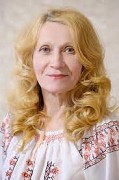Authors
Sviatlana Marozava1; 1 Personal Capacity, BelarusDiscussion
In 2014–2019 Belarusian memory policy was liberalized. Its result was progress in the decolonization of national history. But since the end of 2022 a trend towards unification the history of Belarus with Russian history has become apparent. The process of strengthening the integration of the countries is evident. The unification of historical science is facilitated by the Joint Russian-Belarusian Commission on History, established in early 2024. It legitimizes the activities of Russian memory policy actors on the territory of Belarus.
Russian politicians, and following them, historians, speak of “colossal common history”. However, it was common only for two centuries (1795–1991) – during the Russian Empire and the Soviet Union. Russian historians, and after them the official Belarusian historiography, place special emphasis on the real general period of 1795–1917, when Belarus was part of the empire. Therefore there is a radical revision and rewriting of the history of this chronological period in order to avoid inconsistencies in its interpretations and “memory conflicts” with the Russian side. The entire period is being reassessed – the emphasis is on the positive influence of the empire on the fate of Belarusian people. Thus Russification is now called modernization. The heroes of Belarusian national pantheon are being denigrated (for example, Konstantin Kalinovsky) and alien historical figures are being imposed on it (“liquidator” of the Greek Catholic Church Iosef Semashko, strangler of the liberation uprising Mikhail Muravyov, etc.). Propaganda of pro-Russian narrative leaves almost no room for Belarusian national point of view.
New interpretations are reflected in science (conferences, publications) and educational literature. New narrative is promoted by the academic Institute of History and after it – by university science. The focus of attention is on the subject and content of dissertations. The fight against “the fakes that are poured into Belarus daily by the fugitive opposition and Western politicians” has been announced.
The imposition of Ruskomir narrative is causing resistance from supporters of national concept of Belarusian history. The struggle is being led by independent historical thought, which after 2020 was forced to move abroad. The number of historical programs increased and new YouTube channels with historical content appeared. Educational activities are being conducted by the Institute of Public History, established in 2024. Publication of historical materials - from both sides of the memorial confrontation – usually causes a lot of comments from people interested in history.
I am one of the authors of school textbook on the history of Belarus. Written on the basis of the Belarusian concept, it has been participating in the formation of the nation since 2005. 

